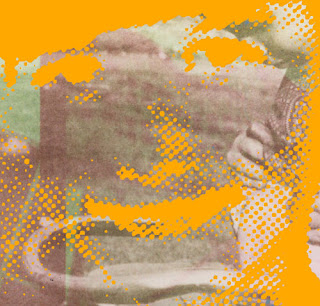On a trip round the shops in Birmingham I was becoming more and more frustrated at not finding any clothes I liked that weren't horribly expensive, until this came on my iPod and I remembered that good music is the only thing truly worth spending your money on.
"Come Maddalena" is taken from the soundtrack to the 1971 Italian drama Maddalena. The film concerns a nymphomaniac who, desperate for a solid relationship, confides in a priest; the priest is also full of moral and spiritual doubt and finds himself confiding in her. Sounds like some hot and heavy Italian confiding, though I wouldn't know as it's very obscure and unavailable on DVD. We do have Morricone's score though, and this is the dizzying highlight (it also features the more famous "Chi Mai"). Beginning with some restless jazz drums (representing Maddalena, we presume) against some keening church organ (you guessed it), it builds and builds, gathering breathy sighs, dramatic harpsichords and urging cellos, until it reaches its chorus motif, a stunningly strange blend of traditionally filmic string landscapes and an incoherant babbling female choir. The strings are the laser-guided soul massage you get with the likes of Scott 4 or Agaetis Byrjun, and the vocals sound like Julie Andrews communing with the spirit world.
Ennio Morricone - Come Maddalena
Needless to say, the prospect of trawling through Gap for jeans after that aural daisy-cutter seemed like very small beer, and so I drifted home and blew money on records online, some of which I'll no doubt post in the coming days.
And if life for you is merely inert space punctuated by the fleeting joy of reading my words, you'll be glad to know I've written something for the "Death Issue" of Sheffield's premier intellectual fold-out fanzine NON. It's a piece about Joan Didion's The Year Of Magical Thinking; Didion's novel Play It As It Lays is where we got the name for our blog, fact fans. Pick up NON for free at the Showroom, Rare And Racy, Syd and Mallory's, lots of other places.








